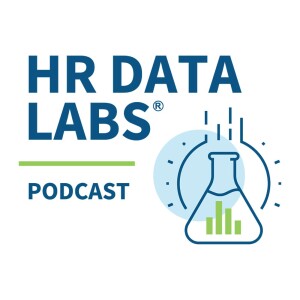
- Podcast Features
-
Monetization
-
Ads Marketplace
Join Ads Marketplace to earn through podcast sponsorships.
-
PodAds
Manage your ads with dynamic ad insertion capability.
-
Apple Podcasts Subscriptions Integration
Monetize with Apple Podcasts Subscriptions via Podbean.
-
Live Streaming
Earn rewards and recurring income from Fan Club membership.
-
Ads Marketplace
- Podbean App
-
Help and Support
-
Help Center
Get the answers and support you need.
-
Podbean Academy
Resources and guides to launch, grow, and monetize podcast.
-
Podbean Blog
Stay updated with the latest podcasting tips and trends.
-
What’s New
Check out our newest and recently released features!
-
Podcasting Smarter
Podcast interviews, best practices, and helpful tips.
-
Help Center
-
Popular Topics
-
How to Start a Podcast
The step-by-step guide to start your own podcast.
-
How to Start a Live Podcast
Create the best live podcast and engage your audience.
-
How to Monetize a Podcast
Tips on making the decision to monetize your podcast.
-
How to Promote Your Podcast
The best ways to get more eyes and ears on your podcast.
-
Podcast Advertising 101
Everything you need to know about podcast advertising.
-
Mobile Podcast Recording Guide
The ultimate guide to recording a podcast on your phone.
-
How to Use Group Recording
Steps to set up and use group recording in the Podbean app.
-
How to Start a Podcast
-
Podcasting
- Podcast Features
-
Monetization
-
Ads Marketplace
Join Ads Marketplace to earn through podcast sponsorships.
-
PodAds
Manage your ads with dynamic ad insertion capability.
-
Apple Podcasts Subscriptions Integration
Monetize with Apple Podcasts Subscriptions via Podbean.
-
Live Streaming
Earn rewards and recurring income from Fan Club membership.
-
Ads Marketplace
- Podbean App
- Advertisers
- Enterprise
- Pricing
-
Resources
-
Help and Support
-
Help Center
Get the answers and support you need.
-
Podbean Academy
Resources and guides to launch, grow, and monetize podcast.
-
Podbean Blog
Stay updated with the latest podcasting tips and trends.
-
What’s New
Check out our newest and recently released features!
-
Podcasting Smarter
Podcast interviews, best practices, and helpful tips.
-
Help Center
-
Popular Topics
-
How to Start a Podcast
The step-by-step guide to start your own podcast.
-
How to Start a Live Podcast
Create the best live podcast and engage your audience.
-
How to Monetize a Podcast
Tips on making the decision to monetize your podcast.
-
How to Promote Your Podcast
The best ways to get more eyes and ears on your podcast.
-
Podcast Advertising 101
Everything you need to know about podcast advertising.
-
Mobile Podcast Recording Guide
The ultimate guide to recording a podcast on your phone.
-
How to Use Group Recording
Steps to set up and use group recording in the Podbean app.
-
How to Start a Podcast
-
Help and Support
- Discover

Ben Waber - What People Analytics Can Tell Us About Your Business
Send us a text
Summary:
Ben Weber is the President and Co-founder of Humanyze. Ben is particularly passionate about the power of behavioral data and analytics and its ability to improve organizations and how people work in general. He has been featured in Wired, CNN, and The New York Times, among other outlets, and his work was selected for Harvard Business Review's List of Breakthrough Ideas and Technology Review's Top 10 Emerging Technologies. In this episode, Ben talks about collaboration data, AI, and expertise.
Chapters:
[0:00 -5:32] Introduction
•Welcome, Ben!
•Today’s Topic: Collaboration Data, AI, and Expertise
[5:33 -15:37] What is collaboration data and why does it matter?
•Understanding how people communication and work together
•Striving for complete data sets vs “good enough” data sets
[15:38 -29:38] Adaptive statistics (i.e., AI) and its role in data analysis
•How developments in technology have allowed us too find correlations within massive data sets
•Are we holding onto unrealistic expectations for AI?
[29:39 -39:55] How does expertise impact people analytics inside of an organization?
•Unlearning that it’s best practice to copy success
•Using hypothesis backed by data to improve an organization
[39:56 -42:47] Final Thoughts & Closing
•Professional ethics’ role in people analytics
•Thanks for listening!
Quotes:
“When companies look at things like collaboration technologies that are purpose built for very specific applications, [they] better understand the implications of that for how people work, because even if it makes a particular team’s task more efficient—if it detracts from the coordination and collaboration that has to happen across teams, it may be negative.”
“I like to call [AI] ‘adaptive statistics’ because that's what it is—these things are correlation engines, and what makes them more productive is lots of data. So why suddenly have things been able to get a lot more predictive or [why] can we [generate images] with these algorithms much better than we could in the past? It's not because the algorithms themselves are different, [it’s because] now we can literally mine every single piece of text on the internet.”
Contact:
Ben's LinkedIn
David's LinkedIn
Dwight's LinkedIn
Production by Affogato Media
Podcast Manger: Karissa Harris
To schedule a meeting with us: https://salary.com/hrdlconsulting
For more HR Data Labs®, enjoy the HR Data Labs Brown Bag Lunch Hours every Friday at 2:00PM-2:30PM EST. Check it out here: https://hrdatalabs.com/brown-bag-lunch/
Produced by Affogato Media
More Episodes
Create your
podcast in
minutes
- Full-featured podcast site
- Unlimited storage and bandwidth
- Comprehensive podcast stats
- Distribute to Apple Podcasts, Spotify, and more
- Make money with your podcast
It is Free
- Privacy Policy
- Cookie Policy
- Terms of Use
- Consent Preferences
- Copyright © 2015-2025 Podbean.com





